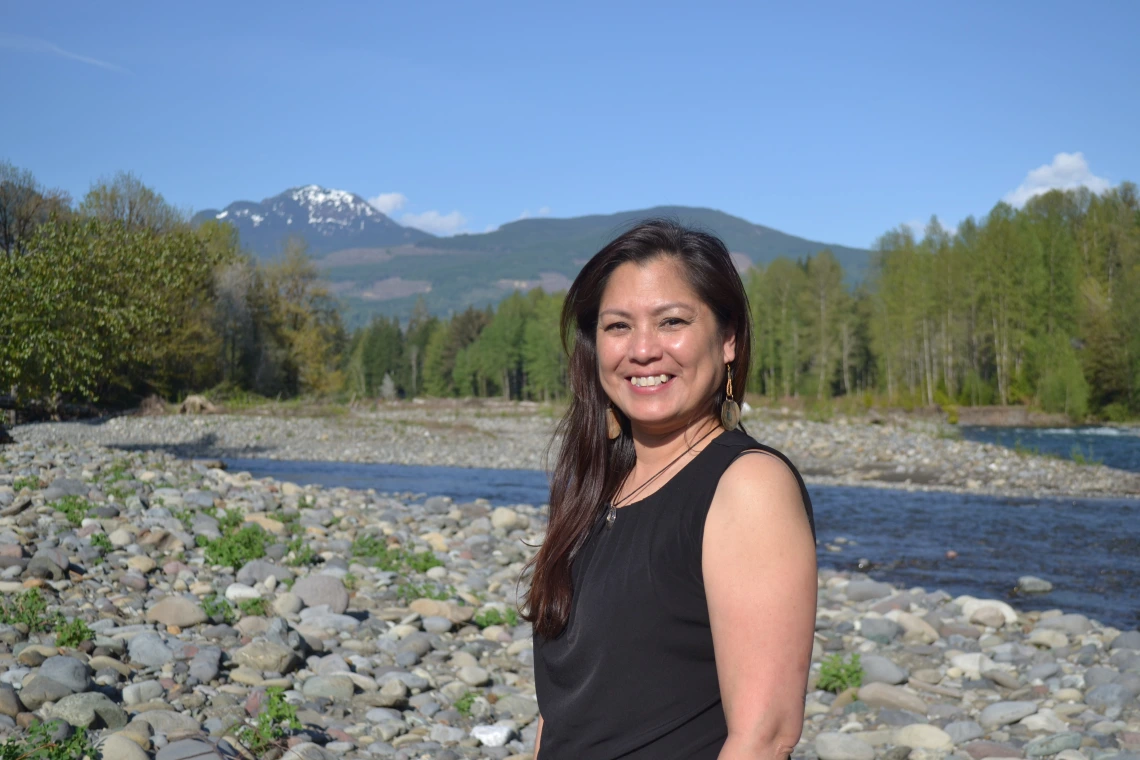Class of 2025: MPS Grad RaeAnna Grace Rabang Honors Identity, Community, and Advocacy
“This program has been intense, eye-opening, and honestly, one of the best journeys—I’m on a whole new path because of it. “

This week, RaeAnna Grace Rabang (Shxwhá:y First Nations, British Columbia) is celebrating the completion of her Master of Professional Studies (MPS) in Indigenous Governance at University of Arizona Law—a milestone years in the making.
Rabang’s journey to her MPS began in 2012, when she was working for the Nooksack Natural Resource Department, and was also a member of the Nooksack Tribe, before she and 305 of her family members were disenrolled without explanation.
"With all the chaos and disconnection of our battle for our identity, I wanted to learn more about our Indigenous roots," says Rabang. "I pursued my education to learn more about Native American history and the laws and treaties that shaped who we are today."
During her undergraduate studies in Native Leadership, she attended a disenrollment seminar at Arizona Law, hosted by leading Indigenous rights attorney Gabriel Galanda ('00), who has long supported Nooksack tribal members for over a decade. That experience left a lasting impression.
“Before I attended, I looked into the college and really like the Indigenous Law classes and was like I really want to go to that University,” she says. “I loved all the classes they offered because they all pertained to what I was studying: Indigenous law.”
A chance encounter with a law school admissions staff member during that visit further solidified her connection to Arizona Law. "After COVID, I enrolled."
The MPS program’s flexibility and depth of Indigenous legal education gave Rabang the space to grow academically and personally. She appreciated the hybrid format and was especially impacted by the January in Tucson sessions. "It was really interesting to hear other Tribes or Bands’ (First Nations people in British Columbia) stories of success and struggles. It was a lot of information in three days, really intense."
Rabang’s work also extended beyond the classroom. Through the Haury Graduate Research Award, she was able to bring her capstone project to life, addressing food insecurity and promoting Indigenous food sovereignty in her community in British Colombia.
"The award allowed me to connect with my community and research our traditional foods and plants,” she says. “My project wasn’t just about food—it was about cultural survival, governance, and reclaiming what colonization tried to erase."
She credits the MPS program with giving her the tools, resources, and confidence to advocate for Indigenous rights. Her project, Traditional Foods: Resurging Old Knowledge, reflects her passion for reconnecting community, culture, and food sovereignty in a meaningful way.
“The MPS also connected me with the law and Indigenous Identity,” says Rabang, who is still disenrolled from the Nooksack Trible. She plans to continue her legal education and pursue a JD.
“This program has been intense, eye-opening, and honestly, one of the best journeys—I’m on a whole new path because of it. “
